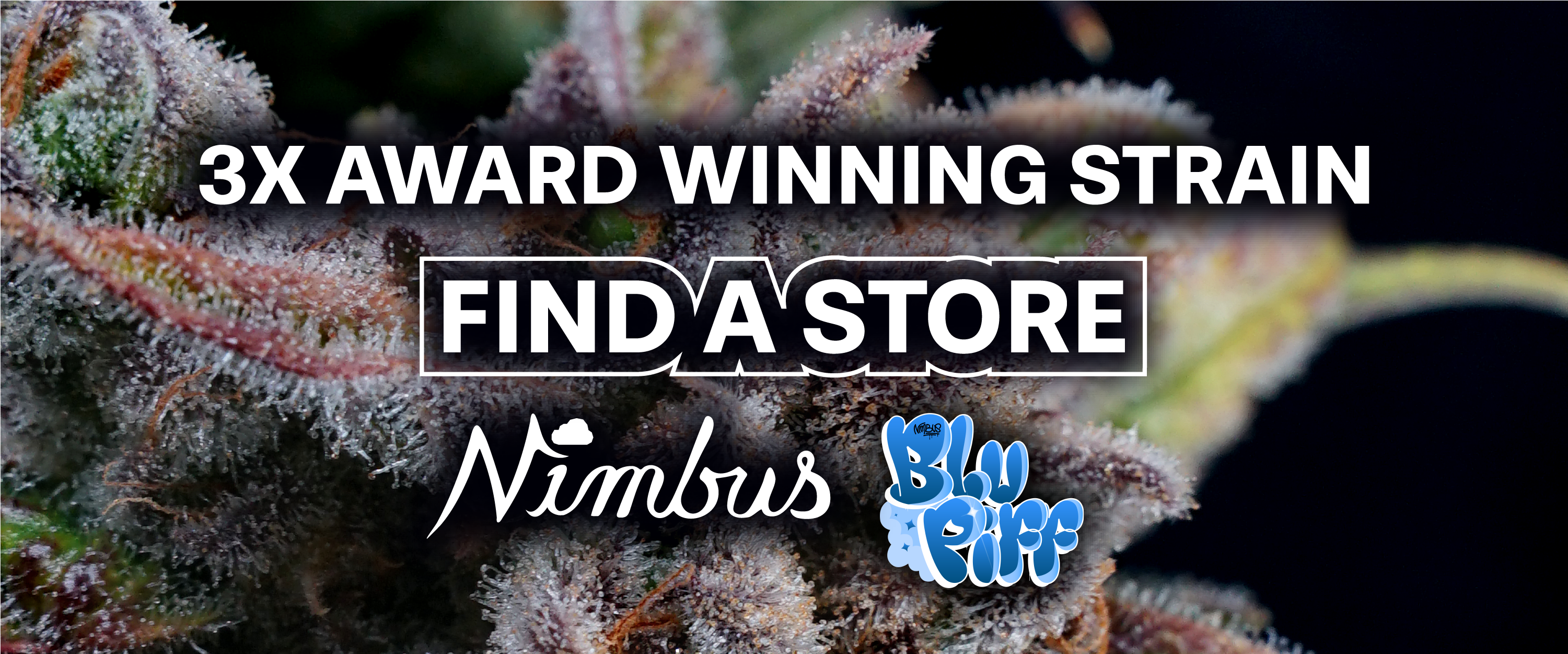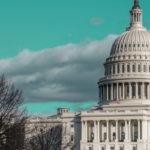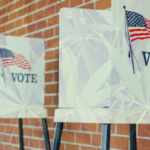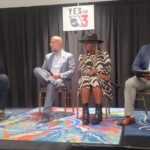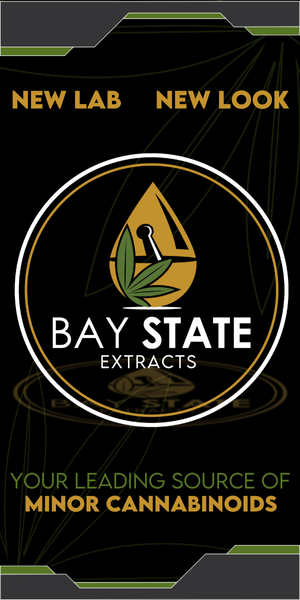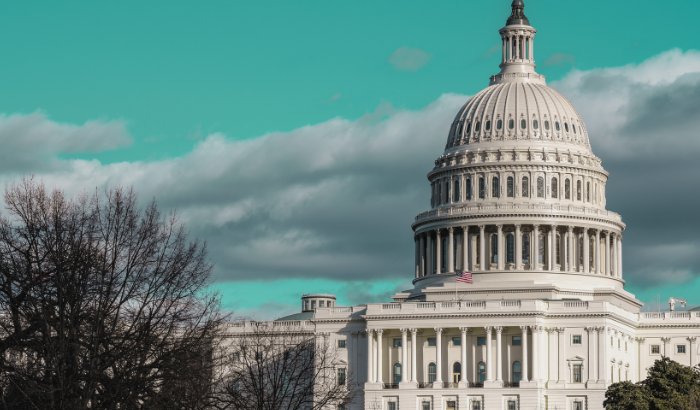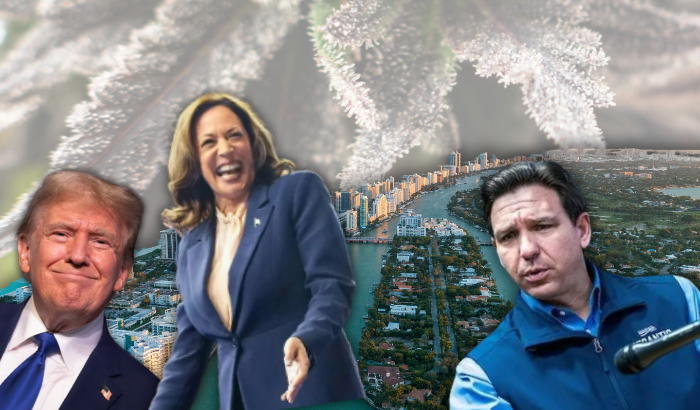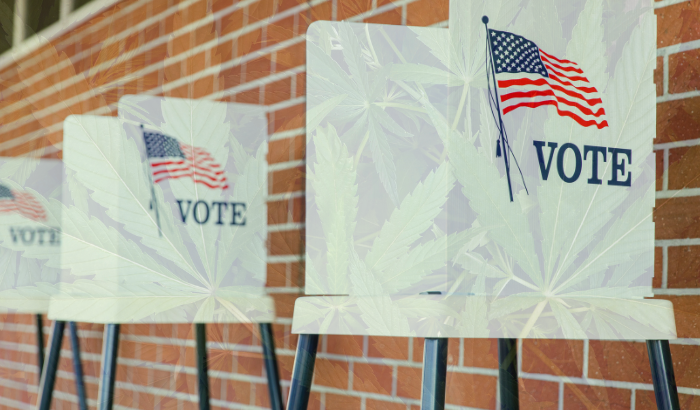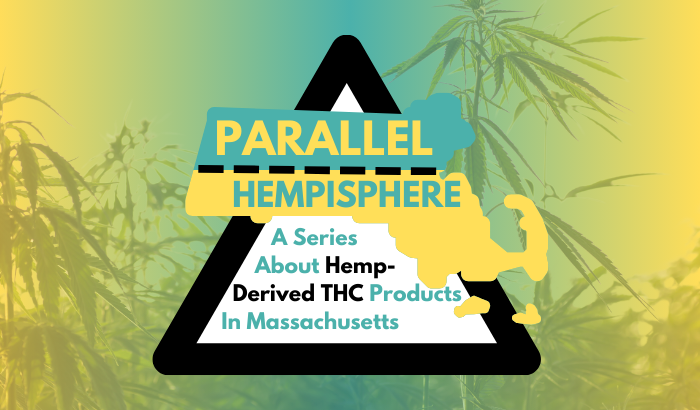
Part one of a five-part series on the sale, legality, outrage over, and popularity of unregulated THC products being sold in Bay State liquor and convenience stores
By Dana Forsythe
with additional reporting and editing by Chris Faraone
Of the issues that are sure to summon debate throughout 2024, hemp-derived synthetic cannabinoids—and untold intersecting science, commerce, health, and legal hot potatoes—may prompt the most clamor. Our team at Talking Joints Memo enlisted ace culture reporter Dana Forsythe to help us survey the landscape and speak with stakeholders and experts to produce a series that untangles the topic. This first of five installments introduces some of the critical context, characters, and confusion at the center of the saga. -TJM Editors
Christopher Hudalla is engaged in a struggle on several fronts.
In one theater, he’s advocating with other testing companies for stricter Massachusetts protocols to measure cannabis potency. As the president of ProVerde Labs in Milford said at the Cannabis Science Conference last fall, “When we talk to our regulators about what’s happening, we often get the response from them that there’s no guidance, there’s no rules on this. … That’s alarming.”
In short: potency inflation is rampant in Mass, and as things stand now in the medical and adult-use markets, many products are much weaker than is stated on the label.
The stakes are high in the fight over lab fraud, and include consumer confidence in the fragile young legal industry. Yet in addition to that massive distraction from their daily duties, Hudalla and others in his field are watching another seismic battle unfold under a literal and figurative microscope—one that is already impacting the weed business in astonishingly unforeseen ways.
Also the chief scientific officer of ProVerde, he is monitoring the crush of cannabis-like products showing up across Massachusetts—from package stores, bars, and bodegas, to health food markets and alternative medicine shops. Hudalla is sounding alarms about potentially harmful ingredients in some hemp-derived synthetic THC gummies, beverages, and other items sold outside of the highly regulated Massachusetts cannabis industry. And he is not alone.

As products like High & Dry Hemp THC seltzers, manufactured out of state by the iconic comedy duo Cheech Marin and Tommy Chong’s Global Holding Company, turn up on more shelves, cannabis enthusiasts and puzzled casual consumers have basically started to ask questions like, What’s the difference between dispensary-bought THC-infused drinks and those which are now available in liquor stores? Are these products safe? And, prominently, What the hell is going on here?
There are no simple answers. Since the passage of the federal Agriculture Improvement Act (aka the Farm Bill) in 2018 removed hemp—a plant that is essentially the same as cannabis sativa minus the psychotropic effects—from the Controlled Substances Act, it’s been off to the races in this parallel arena. The result so far: a booming alternative weed world in which operations ranging from small kitchen setups to large industrial plants nationwide process CBD from said now-legal hemp into so-called synthetic cannabinoids that actually get you high, and then move those goods across state lines with amnesty.
Both the US Food and Drug Administration and Massachusetts Department of Public Health have issued strong language about certain products that contain synthetic cannabinoids—specifically delta-8—citing reports of vomiting, anxiety, and dizziness. The FDA put out a memo documenting those and other health risks in May 2022; in the 14 months prior, the agency received more than 100 “reports of adverse events in patients who consumed delta-8 THC,” more than half of which required medical intervention, and 8% involving pediatric patients less than 18 years of age. One frequent point made by critics of hemp products in Mass is that their packaging can be enticing to children, as opposed to those which are regulated by the Cannabis Control Commission. An agency with strict compliance requirements, the CCC prohibits the “use of bright colors, cartoon characters, and other features designed to appeal to minors.”
While many conservative-leaning states like Texas, where weed is still outlawed, strangely allow for the sale of synthetic delta-8 THC products, Mass officials followed the feds and put their foot down in 2022. That December, the commonwealth’s Department of Agricultural Resources (MDAR), which has jurisdiction over hemp that is produced in Mass, released a memo acknowledging that “hemp derived-products containing delta-8 THC have been seen in the marketplace. … As a result, MDAR has prohibited the sale and manufacture of any hemp-derived delta-8 products within or in the Commonwealth.”
But delta-8 is not the molecule at the center of the current shakeup over hemp products appearing on unregulated shelves in Mass. Most of the canned drinks making headlines are infused with hemp-derived delta-9 tetrahydrocannabinol, a synthetic version of good old-fashioned THC that tends to produce the same or at least familiar effects. And that’s where things get extra confusing, with drinks from out of state—that get you stoned 5mg at a time, just like the ones that you can buy inside of a licensed dispensary—making their way into Mass liquor stores, frequently at lower price points.
While the general safety of consuming delta-9 THC, natural or synthetic, is well documented, Hudalla said that doesn’t mean hemp-derived batches coming from liquor distributors and others operating outside of the CCC’s purview are properly labeled: “Both of these are made with emulsified THC which is fairly unstable, and oftentimes degrades or sticks irreversibly to the inside of the can. So even if they put 5mg in the can, the consumer may only get a portion of that.”
He has data to prove it. In a recent test of one brand of hemp drinks, ProVerde found just traces of THC in one sample, compared to the 30mg advertised by label claim. “At least dispensary beverages are made with regulatory oversight into the cleanliness of the production facility, and includes the mandated testing for contaminants,” Hudalla said. “The liquor store beverage is made by some person, in some facility somewhere, without any oversight, and no testing requirements.”
For a 2023 study that appeared in the Journal of Cannabis Research, analysts tested 53 hemp-derived delta-9 products purchased online and found: “While 96.2% of products were under the legal [delta-9] THC limit, 66% differed from their stated dosage by more than 10%, and although 84.9% provided a lab report to customers, 71.1% of these did not check for impurities. Additionally, 49% of products converted CBD to THC to achieve their levels, and only 15.1% performed age verification at checkout.”

Cycling Frog, based out of Portland, Oregon, makes gummies, mints, softgels, and hemp-derived cannabidiol seltzers, which are available in 2mg, 5mg, and 50mg THC options. According to the company’s Director of Digital Marketing Anita Loomba, all of their products are federally legal, 100% derived from hemp, and contain less than the federal limit of 0.3% delta-9 THC by dry weight. Cycling Frog is available nationwide to consumers through their website, with some varieties in retail locations in states including Colorado, New York, Minnesota, California, and Connecticut. Their 5mg sips are sold in more than 90 stores and restaurants in Massachusetts.
“We start by sourcing juice from various suppliers, many of them located in the Pacific Northwest,” Loomba told Talking Joints Memo. “In addition to sourcing juice, we take pride in growing all of our own hemp in Central Oregon. From this hemp, we extract the required cannabinoids, such as THC and CBD, using our proprietary nano-emulsion technique, which makes them water soluble.”
Loomba said that both their beverage concentrate and finished products undergo rigorous testing throughout the manufacturing process—for cannabinoid potency, as well as microanalysis for heavy metals, solvents, and pesticides at multiple stages. This “ensures that our product is not only safe to consume,” she said, “but also maintains its great taste throughout its shelf life.”
(In our own spot-sampling for this series, some packaging has a lot of information, from disclaimers of federal legality under the Farm Bill, to QR codes which link to potency and contamination lab test results that are searchable via batch numbers stamped on the can. Other brands give little info; in one case, a QR code led to an expired web page.)
A lot of chatter and coverage of hemp-born THC includes the terms “gray market” and “loophole” to describe how these items wind up in Bay State beer coolers—in the case of High & Dry, it’s shipped from a facility in Minnesota via California, where Cheech & Chong’s national distribution is based, and tested in Utah. While those terms are understandable, the legality of selling them in Massachusetts—or lack thereof—seems seltzer clear. Until it starts to blur as products cross state lines.
Per official FDA guidelines, the addition of CBD to food products is prohibited “because CBD is an active ingredient in FDA-approved drugs.” However, the FDA never enforced hemp laws unless interstate commerce was involved, and the Farm Bill basically okayed cross-country sales. Since then, it’s been left to individual states to either regulate or look the other way.

Mass follows the fed as long as the food products in question are sold outside of regulated pot shops, and a DPH spokesperson told Talking Joints Memo that since CBD and hemp converted into delta-9 THC are not approved ingredients under federal law, foods that contain cannabis and cannabis-derived compounds may not be distributed at non-dispensary retail locations like gas stations or packies. Enforcement of those venues is left to state and local health and, if applicable, alcohol inspectors, and they tend to not care.
Regarding hemp-based cannabinoids that can be sold at dispensaries: “Marijuana Establishments and Medical Marijuana Treatment Centers may purchase raw, unprocessed hemp, including flower, and unfinished hemp-derived extracts for use as an ingredient in marijuana products but these ingredients must be obtained from an individual or entity that is licensed with the MDAR Hemp Program.”
John Nathan helped write and pass the Hemp Industry Survive and Thrive amendment in 2020, which ultimately paved the way for the abovementioned guidelines. His company, Bay State Extracts, utilizes industrial hemp to isolate minor and rare cannabinoids for bulk supply to manufacturers, and they only deal with “naturally occurring non-psychotropic phytocannabinoids.” Nathan emphatically eschews delta-8, and said, “I stay within the safe bounds of the law. People hear what I’m saying and say, He’s a prohibitionist, but no, I’m just radically accepting what the law is and operating within its bounds and working incrementally to change it.”
He added, “Where are all the hemp-derived edibles that are exceeding the 5mg per piece law coming from? In Massachusetts, almost 100% out of state. No one’s really making delta-9 edibles here.”
As Nathan and others put it, when it comes to psychotropic hemp goods that are flooding the market, there is no oversight once the products are in Mass. Hudalla said it’s difficult to know the dangers posed, but like others interviewed for this series, he also said that can be the case on the legal side: “Even some of the [infused drinks] in the regulated market may not be safe, as they keep a very acidic pH designed to keep emulsion in solution. … With that level of acidity, it may be eating away the enamel on the consumer’s teeth. Neither the Massachusetts regulatory nor gas station/liquor store beverages require pH testing.” (In an interview for this article, Hemp Beverage Alliance Executive Director Christopher Lackner said pH testing is routine for the companies in his association, adding, “We as an industry are generally adhering to specific standards of production, quality control, and consistency.”)
On one hand, Nathan said the reason there has not been more extreme enforcement on delta-8 or any other hemp-derived molecules is because people aren’t getting sick from them in serious numbers. On the other hand, he noted, “delta-8 can put you in the hospital if it’s not properly balanced,” and said he “would like to see additional parameters of testing enacted for inhalables and combustibles.”
There is frustration on all sides. Hemp farmers across the country as a whole are getting more money for harvests; for the week leading up to Feb. 14, 2024, the US Department of Agriculture National Weekly Hemp Report showed increases in every category, with advertised retail prices up by 156% from the same week last year. But even some of them see unchecked interstate commerce and certain processes as problematic. Last week, Richard Rose, a legend in the hemp world and author of the Richard Rose Report … This Week newsletter on the subject, mocked the general state of his industry: “We tell them we want to feed and clothe people so they legalize and then we end up making dirty bathtub THC for vape pens to be sold to teens in southern states.”
“There’s a huge lesson to be learned from all this,” Rose wrote. “Either regulate marijuana like hemp or regulate hemp like marijuana.”
That’s similar to messaging from the Hemp Beverage Alliance, a national trade association of “brands, distributors, supply chain partners, professional service providers, non-profit associations and retailers working together to create a hemp beverage marketplace that is transparent, sustainable, and provides consumers with the highest quality products.” Lackner, the group’s director, said, “Everybody wants to do the right thing. … We see a lot of interest on the supplier side, on the distributor side, and on the consumer side. The challenge is just that we need a regulatory framework that gives everyone the green light to safely move into the space.”
Lackner’s membership is quick to distinguish itself from other factions of the hemp-derived universe. “The Hemp Beverage Alliance is uniquely focused on hemp-infused beverages, which is to say we have no skin in the game when it comes to any other form of actor,” he said. “The [delta-8] gummies that you may see at a gas station—that’s nothing that we are involved in or promote. Look at their labels and you’ll see what we don’t want—huge milligram counts, [logos] that look like established brands, that very clearly target children, or can be confusing to the consumer.”
Reached for comment about the proliferation of hemp-derived synthetic THC-infused products in non-dispensary Mass retail environments, a CCC spokesperson kept the response in their purview, simply saying the agency “takes seriously its responsibility to provide access to safely regulated marijuana products to adults ages 21 and older through licensed Marijuana Establishments and Medical Marijuana Treatment Centers.” They added that the “agency also conducts ongoing research to aid in the closure of the illicit marketplace in accordance with statute, among other efforts.”

Last October, the CCC teamed up with MDAR on the aforereferenced bulletin regarding “Obtaining and Using Hemp Products,” but it only applies to state-licensed hemp producers and processors on the cultivation and manufacturing side, and to authorized dispensaries on the sales end. MDAR licensees are not able to participate in the hemp-derived drink boom, while companies from other states that are selling synthetics in Mass don’t have to follow those regulations.
Hudalla said that despite him and others notifying various agencies about so much uncertainty, he has seen little movement or concern on the part of the CCC, MDAR, or DPH—all of which adds up to an ongoing public safety quagmire.
“That leaves just Beverly enforcing this in Massachusetts,” Hudalla said. He’s referring to how, last year, the city north of Boston banned the sale of “any cannabinoid that is altered by a chemical reaction that changes the molecular structure of any natural cannabinoid derived from the plant Cannabis to another cannabinoid found naturally in the plant Cannabis.” The Beverly health director told reporters, “We don’t want to see any of these synthetic products. … We’re trying to get ahead of the game.”
“The rest of the state,” Hudalla said, is a “free-for-all.”


